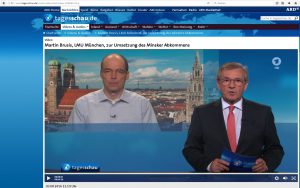Interview with Aleksandra Nenadović, Voice of America, 26 July 2017
On 24 July 2017 Serbia’s President Aleksandar Vučić called for an “internal dialogue” on Kosovo. His article triggered an intense public debate and a large media echo within and beyond Serbia because he urged his fellow-citizens to face reality and stop waiting to be given “what we have lost a long time ago”. Serbia should cease to preserve “a conflict whose meaning we do not understand” and should rather resolve the “Kosovo (Gordian) knot” in a responsible and non-violent way.
